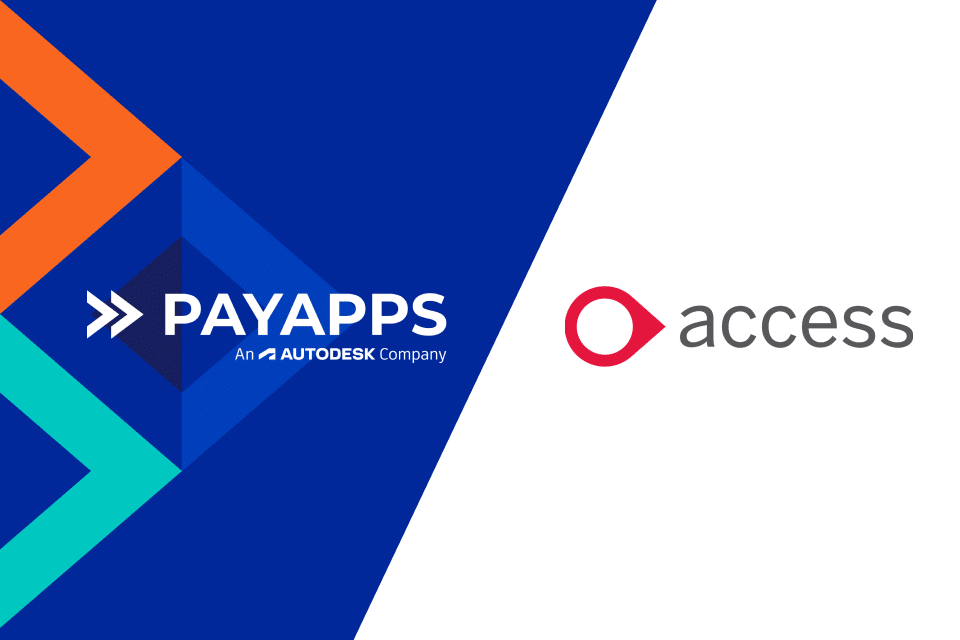Are late payments in construction really inevitable, or is there a solution out there that helps everyone win?
ABBA got it right. Money, money money. That’s what the construction business is all about – and everyone knows it. From the boardrooms where directors of the largest multinationals point at ominous graphs, to site offices where subcontractors swap payment horror stories over mugs of sweet black tea, it’s all about the money. So why is it that the industry has a reputation for not paying?
Surely it’s not the case that everyone hiring a subcontractor is incredibly tight with their cash, or even worse, that it’s in the best interests of contractors to sweat the cash and screw over the little guys by paying late?
Whatever the reason, is this a reputation that’s based in reality? And what needs to change? Let’s find out.

In a climate where Brexit, skills shortages and the economy dominate the headlines, late payment is still one of the biggest problems for the construction industry. 27% of subcontractors say that late payment is the most significant challenge they have to face. That’s if they get paid at all. That shortfall is a significant chunk of change that could allow a smaller business to bring on new staff.
It seems pretty clear cut then. Subcontractors are being paid late. But that doesn’t mean it’s all a deliberate plan to stiff David so Goliath can have a new Porsche in his garage. Far from it.
The bigger businesses aren’t the enemy here. After all, subcontractors rely on the big businesses to hire them for jobs in the first place. No, the real issue behind late payment is inefficiency.
Take two minutes now to work out all the steps you have to take to get payment to a subcontractor.
Your exact list is going to differ depending on what you do, but you can be sure that “chasing up information”, trying reconcile what you have received to how you are actually valuing the work“, double-checking figures”, “re-keying information” and “spending an hour digging through filing cabinets” are all going to make unwelcome appearances. And that’s before disputes over variations and unclear or changing briefs start to cause friction about who’s owed what, by when, and why.
The fact is that late payments don’t help anyone. They don’t help subcontractors, who are left out of pocket and unable to attract the high quality workers they need (there’s that skills shortage again!) – while worrying about cashflow. They definitely don’t help the contractors, who end up having to sort out the ensuing payment disputes and project delays.
Nobody wins. Nobody’s rubbing their hands together and cackling about how late payments are a key part of their evil masterplan. So what’s the solution?
Simple. As a wise man once said (alright then, it was Vanilla Ice), we have to Stop! Collaborate, and Listen.
Stop wasting time. If inefficiency is causing this problem, stop being inefficient. It’s the 21st century, and the solution to inefficiency is solving the problem its source by moving to a digital system.
The next step is to collaborate. Rome wasn’t built in a day, but if everyone involved had pulled together, maybe the Colosseum would’ve been finished a little bit quicker and within budget. If it’s in nobody’s best interests to pay late or be paid late, then surely it’s in all of our interests to make sure everyone is paid on time.
The Payapps solution is a really simple tool that’s designed to make this collaboration simple – especially when it comes to the processing of payment claims. By putting everyone on the same page when it comes to processing claims and payment certifications, managing admin workflows and all the associated paperwork, we make sure everyone knows exactly where they are in the chain. By addressing the problem at its source, through collaborating and sharing the responsibility for payment processes, we’ll speed up the valuation, approval and payment time. Without wanting to blow our own trumpet, we’ve had customers tell us that this process previously took two days a month, and now takes just two hours. We feel like this is a pretty good indication that we’re getting the collaboration thing right.
Finally, listen. All the disputes that arise from late payments, lack of automated processes, poorly-written contracts, and moving goalposts could be solved by simply listening to each other. If we all take the time to consider everyone’s thoughts, things move more smoothly. At the moment, over half of subcontractors don’t think they’re being listened to.
The more valued subcontractors feel, the more involved and engaged they are with payment processes, the more they’re treated like true partners, the happier they are, and the more successful projects are.
A happy subcontractor doesn’t pass on that old chestnut that it’s in the best interests of larger companies to pay late. We ditch that reputation, and finally, everyone wins.
Sounds good to us.
Do you think late payments are inevitable in the construction industry?
Takeaways
- 27% of subcontractors view late payments as one of their most pressing problems.
- Late payments aren’t down to malice – it’s simply a matter of addressing inefficiencies at their source.
- Nobody wins when payments are late, and it’s a huge contributor to disputes, costs, stress, and the skills shortage.
- Digital processes can speed up payment processing times significantly.
- The most important step a contractor can take to reduce payment times is to adopt a collaborative payment process.





